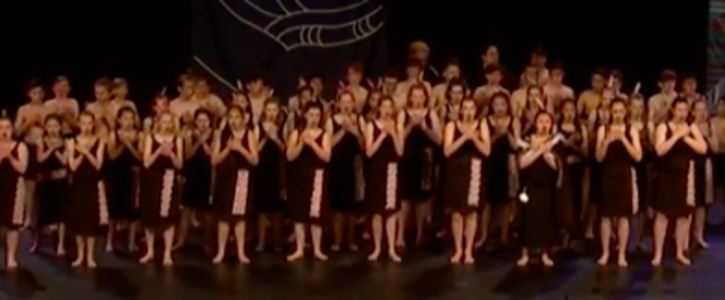Kia Ora Te Whanau,
We need funding to provide professional kapa haka tutors in our schools.
Not only do students need reliable and trained kapa haka tutors. But our talented kapa haka experts need a career pathway and a financially viable career.
Please support this proposal for the funding of two full-time tutors allocated between 10 (ish) kura (schools), or Kāhui Ako, throughout Aotearoa.
These professionals would work in teams and be of diverse genders (especially for larger schools and schools with older students).
In addition, we must have specific, financially viable, and effective training courses (which include a teaching component) developed with tertiary institutions.
We have talented people, so let's offer them a viable career and a way forward through honoring kapa haka as the taonga it is!
For further support please refer to Ka Hikitia outcomes especially Ta Tangata, Te Kanorautanga, Te Tuakiritanga and Te Rangatira Tanga.
Why is this important?
The current issue with recruiting and the retention of qualified and professional kapa haka tutors in schools is a serious concern…
Tamariki love kapa haka! The number of students who are participating and passionate about kapa haka is growing all the time! The student's knowledge of Te Reo me ona Tikanga Māori and confidence grow as they learn waiata, haka and other skills. We have seen improvements in the attendance and engagement of many students through a good quality kapa haka group. But finding the right people to fulfil that teaching role is a major and ongoing struggle.
The Problem for Kura...
As a national education priority (NEG 9 and NEG 10), the ability to find affordable, suitable and committed tutors shouldn't be so difficult. Schools are scrambling around every year to find professional tutors. On more than one occasion we have had people commit to tutoring our groups and then pull out in week one, term one! The anxiety this induces when you have up to 140 kids sitting in a hall ready to learn kapa haka is intense!
The solution to this has been employing independent professional tutors. However, they are expensive, especially for smaller schools. Furthermore, the pull between priority curriculum areas and funding Māori performing arts is difficult for principals and boards of trustees. Funding is often prioritised to literacy and numeracy, science and technology, PE and LEOTC (NEG 5). The responsibility for funding Māori Performing Arts is a choice that should not be on the heads of individual principals and boards. As we are bound by Te Tiriti o Waitangi (Article Two), to protect this taonga and this should be done at a national level.
Tutors are hard to find and relying on whānau to do the teaching of kapa haka is neither a respectful nor a sustainable option. Once you do find a volunteer (or someone who does the job for koha) the retention of tutors is difficult, life circumstances change for volunteers, more financially viable opportunities come up, new educational opportunities arise and family commitments, at times, take precedent. Many tutors cannot commit (for free) long-term to a school program.
The problem for professional tutors...
To run a free-market-style business funded by schools can be difficult for kapa haka experts. Particularly in relation to supporting families and maintaining a start-up business model or in the long term. Tutors can only charge what schools can afford and need to do all the mahi of running a business, understanding finances and organsing amongst many schools. They, therefore, need to have a certain amount of energy, confidence, and know-how to take these risks to manage this effectively. This is not an easy model for many people to set-up and run long term.
As stated previously, schools are left to rely on whānau who volunteer or are given koha. This often puts pressure on whānau who have their own work and family commitments. It is not respectful to ask for so much for free, in a world where money is the formal acknowledgment of value. This feels disrespectful and is disheartening, to say the least for those who are asked to give so much for so little.
On top of that, some tutors may not have the teaching skills required and it can be a daunting task for a whanau member (or two) to tutor a large group of children. There is usually little or no teaching training for these people and it can be seriously challenging for them.
In summary, there are few or no professional and secure career pathways for people skilled in kapa haka. We need to create a system where people can achieve success in a Māori world and then have that honored with financial stability and security in the wider community.
In short, the current system is not respectful of Māori mahi or the enormous value and importance placed on kapa haka by our tamariki. The schools are doing the best they can to fill this gap, but it shouldn't be this difficult to honour our commitments to Te Reo me Ona Tikanga Māori, me, Te Tiriti o Waitangi. We are calling that the taonga of kapa haka is protected through supported career pathways, that our tamariki have no obstacles to participation and that the Government and Iwi in partnership have a discussion and make a plan to implement structures for a long term tautoko of kapa haka.
So join us to fight for paid professional kapa haka tutors in every school!


